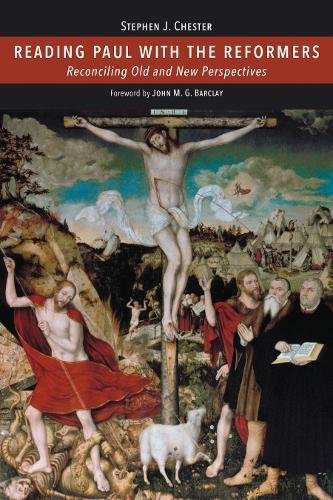Ben. It seems very ironic indeed that while various of the members of the NPP spend a lot of energies trying to suggest that by works of the law, Paul’s focus is primarily if not exclusively on ‘the ceremonies’ i.e. circumcision, Sabbath keeping etc. whereas the Reformers say no, the phrase works of the Law is not a criticism of ethnocentric ceremonies, it is a critique of the whole Law which cannot justify. It seems as though these folks are ignorant of the Reformation argument by Calvin and others, or ignore it. What do you make of this?
Stephen. We have two connected issues here: (i) what does the phrase ‘the works of the law’ mean in general, and (ii) what is Paul’s target when he says that justification is not by ‘the works of the law.’ On point (i) there actually is not too much disagreement. The Reformers insist that the phrase refers to the whole law, i.e. to the characteristic Jewish insistence on the swathing of the entirety of life in obedience to divine commandments. However, on point (ii) when they exegete the texts where Paul uses the phrase they always find his target to be works-righteousness. NPP scholars (e.g. James Dunn) are quite capable of noting that the phrase refers to the whole law, but when they exegete the texts where Paul uses the phrase they always find his target to be an ethnocentric emphasis on boundary markers (circumcision, food laws, sabbath observance). I think this ignores the fact that in Paul’s context righteous behavior was synonymous with a nomistic Jewish way of life and sinful behavior with a Gentile way of life. To say that justification does not result from human ethical achievement coheres with and is an inevitable consequence of saying that it does not result from Jewish ethnic identity. I think we have impaled ourselves on a false either/or dilemma in relation to this issue. I think Barclay is on target when he argues that the underlying issue for Paul in relation to ‘the works of the law’ is the incongruity of grace, which discounts all forms of human worthiness (including both ethnic identity and ethical achievement).
Das Ende
Thanks to Stephen for a very good and stimulating conversation













